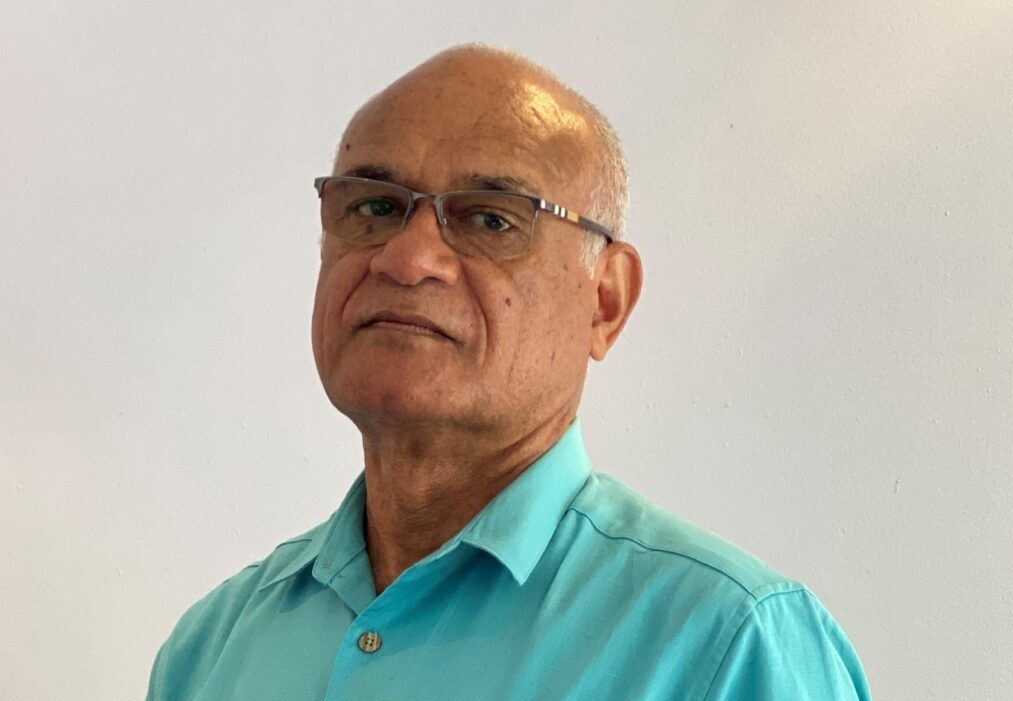I AM a child of Fiji – born in the shadows of Suva’s rain trees, raised between the red soil of Kukum Farm in Honiara, the riverbanks of Rewa, and Taveuni’s emerald hills where the mist clings like a lover. For 34 years, my blue Fijian passport was my compass, leading me through United Nations corridors in New York and Vienna, across battle-scarred streets in Mogadishu and Kabul, into the tense silence of Baghdad and the stubborn hope of Freetown.
The world imagines Fiji in extremes – either as a carefree paradise of turquoise waters, or as a troubled nation defined by coups and climate crises. Neither captures the truth. My Fiji is a complex tapestry woven with threads of quiet courage and contradiction, where tradition and modernity dance an uneasy tango beneath the frangipani trees.
Abroad, I grew accustomed to questions that revealed more about the asker than my homeland: “Is Fiji really like paradise?” “Don’t the political problems worry you?” “Why leave New York for a small island?” The world prefers its island nations simple – either as exotic escapes or textbook examples of postcolonial struggle.
Yet through every crisis zone and diplomatic negotiation, Fiji remained my compass point. I carried the scent of tropical rain on hot asphalt, the symphony of Nausori market at dawn, the unspoken solidarity of strangers pressed together on a sweltering bus. I remembered a rhythm of life measured not in productivity but in shared moments – kava circles dissolving time, funerals where tears and laughter flowed equally, cyclones that stripped life down to its essentials of community and survival.
When I decided to return permanently in 2022 – first to participate in Fiji’s democratic reckoning, then to stay – many called it romantic folly. They weren’t entirely wrong. Corruption had eroded trust like the sea eats our shores. Our brightest minds sought opportunities abroad. The ghosts of 1987, 2000, and 2006 still whispered in our political discourse.
But coming home taught me something no UN mission ever could: Fiji isn’t just a place to endure – it’s where we truly live. Not paradise, not tragedy, but home – where we argue and reconcile, where neighbours become family when the winds howl, where tradition grounds us even as the world changes.
My return coincided with a deeper homecoming – my appointment to the Bose Levu Vakaturaga, Fiji’s Great Council of Chiefs. Walking onto Bau Island for my first meeting, I was a paradox: a chiefly son more familiar with UN protocols than veiqaravi vakaturaga, my perspective shaped by global crises yet untested in the nuanced dance of Fijian diplomacy.
In the sacred spaces of Bau and the welcoming arms of Rewa, I learned to listen differently – to the meaning beneath words, to the history shaping every debate. The GCC’s challenges mirror Fiji’s own: honouring tradition while embracing progress, balancing indigenous rights with multicultural reality, breaking cycles of power that refuse to loosen their grip.
Now home, I see Fiji’s fractures clearly. Our national discourse has turned toxic – criticism becomes treason, debate devolves into personal attacks. We’ve confused loyalty with blind allegiance, mistaken scrutiny for betrayal. Yet democracy requires dissent without fear, accountability without vengeance.
This is the Fiji I’ve returned to – imperfect, evolving, mine. iTaukei dalo farmers struggle against unfair trade. Rising seas whisper warnings to coastal villages. The same political actors take centre stage. But there’s stubborn beauty here too – in our resilience, in our refusal to be defined by others’ narratives.
The diaspora views Fiji through lenses of either nostalgia or frustration. The truth is more complex and more magnificent. After more than 30 years away, I no longer see my country as an expatriate might. I see it as it truly is – flawed, familiar, and fighting for its future.
That’s why I came home. Not because Fiji is perfect, but because she is ours. Not because it’s easy, but because the most difficult homecomings are often the most necessary. As the tropical dusk paints Deuba’s skies in fire, I understand what my years abroad couldn’t teach me: true belonging isn’t about where you’re from, but where you’re willing to stay and help rebuild. And that, at last, is why I’m here to stay.



